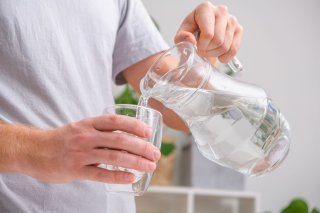Grant for Treatment Technology Demonstrations Using Practical and Affordable Manganese Treatment for Small Drinking Water Systems

EPA awarded $1,000,000 in research grant funding to Cornwell Research Group to evaluate the effectiveness of common manganese treatment technologies in small drinking water systems. This research will improve the ability of states, Tribes and small utilities to adopt and implement common manganese treatment technologies.
Manganese, an essential trace element in the human diet, is naturally occurring in the environment and prevalent throughout the United States in groundwater and surface water. However, recent evidence suggests that exposure to manganese at levels previously considered to be safe can cause cognitive and motor deficits in children. Small public water systems (serving 10,000 or fewer customers) frequently lack the resources and capacity to adopt and maintain manganese treatment systems.
The goal of this research is to inform states, Tribes, utilities, communities’ consultants, and state regulators on more effective manganese management in small, rural, and Tribal systems. This includes increased ability to implement manganese treatment technologies based on source water characteristics, capital, operations and maintenance costs, and maintenance requirements enabling more effective management of manganese removal in small systems.
To learn more, visit the funding opportunity webpage.
Cornwell Research Group, Newport News, Virginia
Project Title: Guidance on Practical and Affordable Manganese Treatment for Small Drinking Water Systems
Principal Investigator: Everett Skipper
Award Amount: $1,000,000
Researchers will demonstrate the effectiveness of standard manganese treatment technologies in small water treatment systems by evaluating costs of treatment, treatment performance, and residuals handling and disposal. The team will accomplish these goals through 1) a virtual data-gathering workshop; 2) utility site visits for additional data gathering, sampling, and technical assistance; 3) data analysis to develop small system guidance; 4) optimization and resulting costs of treatment and 5) public workshops and recorded webcasts for widespread dissemination of recommendations. Based on data provided by participants, an analysis will be made to determine site-specific treatment solutions. Recommendations will be made available to many stakeholders through multiple engagement efforts, including site visits, workshops, webinars, guidance pamphlets, conferences, social media, and a web presence. This work is expected to provide a greater understanding of the challenges small utilities face in implementing and maintaining manganese treatment for drinking water.
View the research abstract from Cornwell Research Group.
